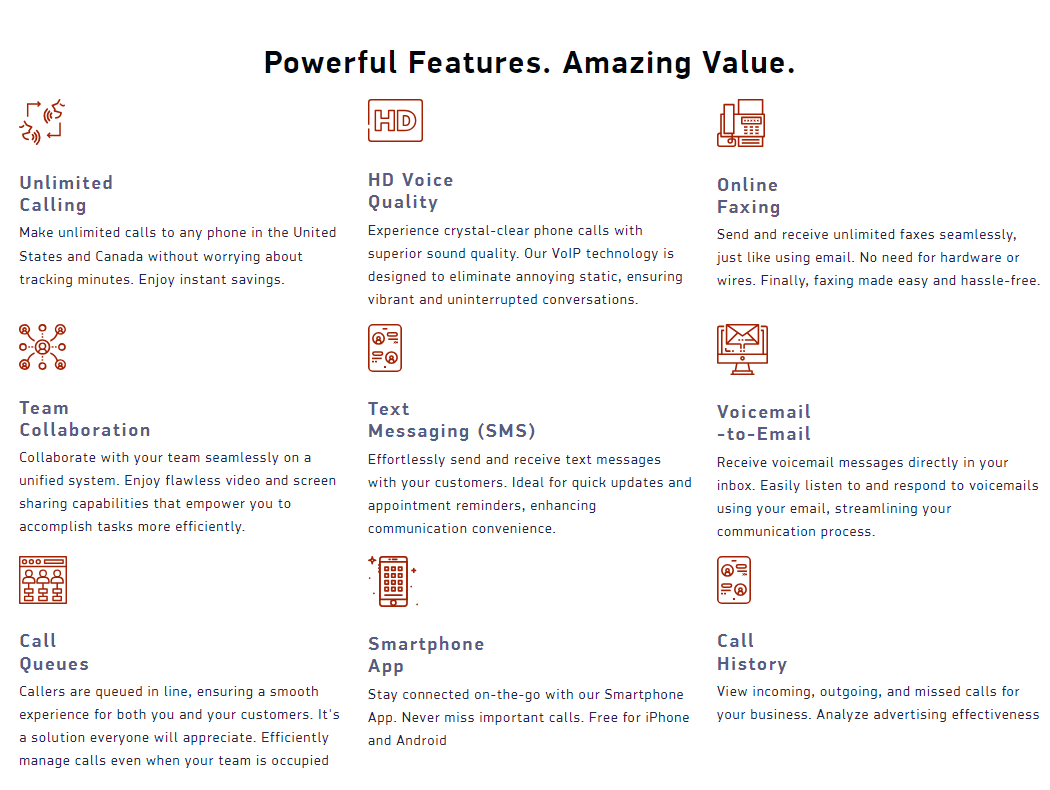 In this blog entry, the professional NYC area VoIP system service here at QTech will describe the main advantages of adopting a cloud-based VoIP for remote work at your business.
In this blog entry, the professional NYC area VoIP system service here at QTech will describe the main advantages of adopting a cloud-based VoIP for remote work at your business.
Main Benefits of VoIP Systems for Remote Work
1. Mobile Flexibility
Cloud-based VoIP systems provide excellent mobility, empowering employees to make and receive calls from any location with an internet connection. This flexibility is especially critical for remote workers, whether they are working from home, traveling, or on the go. With softphone applications on smartphones, tablets, or laptops, employees can access all office phone system features, including conference calls, call forwarding, and voicemail.
“VoIP empowers businesses to adapt to modern work environments where employees need reliable tools to stay connected, wherever they are.” – TechRadar.
This ensures continuous communication and scheduling flexibility, enabling teams to maintain productivity without geographical constraints.
2. Cost Benefits
Cloud-based VoIP significantly reduces communication costs, particularly for businesses with remote teams. Traditional landline systems come with costs for installation, maintenance, and long-distance calls, all of which are eliminated with VoIP. Furthermore, VoIP service providers often offer predictable pricing plans, making it easier for businesses to manage budgets.
“Switching to VoIP can cut costs by up to 50% for small businesses and even more for those with international operations.” – Business.com.
Additionally, there’s no need for expensive hardware or infrastructure, which reduces the upfront investment and ongoing expenses.
3. Scalability
Scalability is critical for businesses experiencing growth or fluctuating workforce demands. Cloud-based VoIP enables the addition or removal of phone lines and extensions quickly and effortlessly through a user-friendly management portal.
“For businesses with seasonal hiring patterns or fluctuating staff numbers, VoIP’s scalability is a game-changer.” – Forbes.
Unlike traditional systems that require physical upgrades, VoIP solutions adapt seamlessly to the needs of your organization, saving time and resources.
4. Enhanced Collaboration
VoIP systems include collaboration tools like video conferencing, screen sharing, instant messaging, and file sharing, ensuring that teams can work together effectively regardless of their physical location. These tools allow remote teams to maintain productivity and foster a sense of connection.
“Video conferencing through VoIP has become an essential tool for businesses embracing hybrid or remote work setups.” – ZDNet.
With features like virtual meeting rooms and real-time updates, VoIP encourages better team dynamics even in dispersed setups.
5. Reliability
Cloud-based VoIP systems are highly reliable, offering redundancy and failover measures that traditional phone systems lack. Providers often have backup servers and multiple data centers to ensure uninterrupted service, even in cases of local internet outages.
“Modern VoIP providers achieve near 99.99% uptime by leveraging cloud technology and robust redundancy systems.” – TechCrunch.
This reliability ensures businesses can stay operational and connected, no matter the circumstances.
6. Security Benefits
Security is a top priority for cloud-based VoIP providers. They implement measures like encryption, multi-factor authentication, firewall protection, and network security protocols to safeguard communications.
“With advanced encryption and compliance with industry standards, VoIP is a secure alternative to traditional telephony.” – CSO Online.
Data is housed in secure data centers with access controls, redundant networks, and surveillance systems, ensuring that sensitive information is well-protected.
Additional Insights
- Integration Capabilities: Many VoIP systems integrate seamlessly with tools like CRM software, email, and project management platforms, enhancing workflows.
- Eco-Friendly: By reducing the need for physical infrastructure and travel, VoIP contributes to a smaller carbon footprint.
- Global Reach: Virtual numbers allow businesses to establish local presences in different regions without physical offices.
By adopting cloud-based VoIP solutions, businesses can ensure their teams remain agile, cost-efficient, and collaborative, meeting the demands of today’s remote and hybrid work environments.



